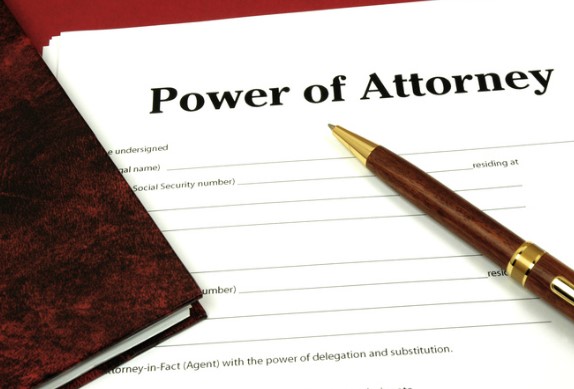
Powers of Attorney
This is probably one of the most serious documents one is asked to Notarize.
You should note that we do not provide a Power of Attorney, we notarize the Power of Attorney for you.
Powers of Attorney come in many forms. They can cover medical financial and/or real estate situations. In some instances, a Power of attorney can be made inclusive of everything.
1. General Power of Attorney
A general power of attorney is one of the more broad types of power of attorney that grants someone more generalized authorization to handle your affairs. The person you designate to act on your behalf, also known as an agent, could handle a variety of tasks, including entering contracts or buying or selling real estate.
2. Special or Limited Power of Attorney
If you’re looking to narrow down what your agent can do on your behalf, you’ll want to choose a special or limited power of attorney.
Before signing and getting a limited power of attorney notarized, you’ll want to get as granular as possible as it relates to what your agent can and cannot do on your behalf. If you’re unsure of what to include in your special power of attorney, it’s always a great idea to consult with your lawyer first.
3. Durable Power of Attorney
The type of power of attorney you end up choosing will be effective during the dates you specify. Non-durable or enduring power of attorney ends if you decide to cancel it of you’ve specified an expiration date. But what do you do in the situation when the person who executes the POA becomes incapacitated? Does the power of attorney still hold?
In this instance, if you’d like your power of attorney to be upheld even if you become mentally incompetent to communicate your wishes or decisions, a durable power of attorney may be a fit. For example, if you fall into a coma but want your spouse to be able to make decisions on your behalf, you can denote that you’d like your power of attorney to be durable. This grants your spouse the ability to make decisions on your behalf, despite being in a coma.
4. Healthcare or Medical Power of Attorney
If you ever fall gravely ill, you have every right to decide what kind of medical treatment you end up receiving.
Healthcare or medical POA is a type of power of attorney where you authorize a trusted agent the ability to make medical treatment decisions if you’re incapacitated. There might be a situation where you’re unable to communicate your wishes and in the situation where you’re not able to, you’ll want a trusted agent by your side to carry out your decisions.
Most medical powers of attorney are durable since it takes into consideration that you’re not mentally competent to communicate your decisions.
In each of these instances, you’ll want to consult with your lawyer when selecting your agent to act on your behalf. And it’s always a great idea to ask your lawyer to walk you through each step on how to notarize your power of attorney and what to include in each document.
OUR NOTARIES CANNOT PROVIDE LEGAL ADVICE. We suggest that you contact an attorney for guidance as to what you do or do not require.
REMEMBER, a Power of Attorney expires upon the death of the principal.